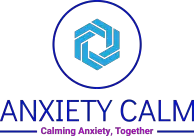Are you curious about the physical symptoms of anxiety? It’s a common question many people ask when trying to understand this common mental health condition. Anxiety can manifest in various ways, both mentally and physically, and being aware of these physical symptoms is crucial for recognizing and managing anxiety effectively. In this article, we will explore some of the common physical symptoms associated with anxiety, so that you can gain a better understanding of what to look out for and how to cope.
1. Trembling and Shaking
1.1 Hand Tremors
Anxiety can often manifest itself in physical symptoms, and one common symptom is hand tremors. When you’re feeling anxious, you may notice your hands shaking involuntarily. This trembling can vary in severity and may be more pronounced during periods of heightened anxiety or stress. Hand tremors can make simple everyday tasks, such as drinking from a cup or writing, more challenging. While hand tremors can be alarming, they are a normal physical response to anxiety and are usually temporary.
1.2 Body Tremors
In addition to hand tremors, anxiety can also cause trembling and shaking throughout your body. These body tremors can be mild or severe, and they may occur in specific areas of your body or throughout your entire body. Body tremors are often accompanied by feelings of restlessness or agitation, and they can make you feel out of control. It’s important to remember that body tremors are a physical response to anxiety and are not indicative of a more serious underlying condition. However, if you are experiencing severe or persistent body tremors, it is advisable to seek medical attention.
2. Rapid Heartbeat
2.1 Increased Heart Rate
Another physical symptom of anxiety is an increased heart rate. When you’re feeling anxious, your body enters a state of heightened awareness, often referred to as the “fight-or-flight” response. As a result, your heart rate increases to pump more blood to your muscles and organs. This increased heart rate can make you feel as though your heart is racing or pounding in your chest. It can be accompanied by other sensations such as a fluttering feeling or skipped beats. While an increased heart rate is a normal physical response to anxiety, it can be uncomfortable and concerning. If you are experiencing an abnormally fast or irregular heartbeat, it is important to consult a healthcare professional.
2.2 Heart Palpitations
Along with an increased heart rate, anxiety can also cause heart palpitations. Heart palpitations are an awareness of your heartbeat, and you may experience sensations like a rapid, pounding, or fluttering heartbeat. These palpitations can be short-lived or ongoing, and they can occur at rest or during physical activity. While heart palpitations can be alarming, they are generally harmless and are often a result of the body’s response to stress and anxiety. However, if you have an underlying heart condition or if your palpitations are accompanied by severe symptoms, it is crucial to seek medical attention.
3. Sweating
3.1 Excessive Sweating
When faced with anxiety, you may notice that you are sweating more than usual. Excessive sweating is a common physical symptom of anxiety and can occur even when you are not engaging in physical activity or in hot environments. This excessive sweating can be embarrassing and uncomfortable, as it often leads to damp or wet clothing. It is important to remember that excessive sweating is a normal response to anxiety and is caused by the body’s production of stress hormones. Managing stress and anxiety through relaxation techniques and lifestyle changes may help alleviate excessive sweating.
3.2 Night Sweats
In addition to excessive sweating during the day, anxiety can also cause night sweats. Night sweats refer to excessive sweating that occurs during sleep, and they can disrupt your sleep patterns and leave you feeling fatigued. Waking up with soaked sheets or clothes can be distressing and contribute to further feelings of anxiety. Night sweats can be particularly bothersome for individuals who already struggle with insomnia or disrupted sleep. Practicing good sleep hygiene and finding ways to manage nighttime anxiety can help reduce night sweats and improve sleep quality.
4. Shortness of Breath
4.1 Difficulty in Breathing
One of the most unsettling physical symptoms of anxiety is the feeling of shortness of breath or difficulty in breathing. When you’re anxious, your body may enter a state of hyperventilation, where you take rapid, shallow breaths. This can lead to a sensation of not getting enough air and make you feel as though you are suffocating. Difficulty in breathing can be frightening and may exacerbate anxiety symptoms, creating a vicious cycle. It’s essential to recognize that shortness of breath is a common physical response to anxiety and can be managed through relaxation techniques and deep breathing exercises.
4.2 Feeling of Suffocation
In addition to difficulty in breathing, anxiety can also cause a feeling of suffocation. This sensation can be characterized by a tightness in the chest or throat, which may make it feel as though you are being choked. The feeling of suffocation can intensify anxiety symptoms and contribute to further distress. It’s important to remember that this sensation is a result of the body’s response to anxiety and not a sign of an underlying respiratory issue. Engaging in calming activities, such as deep breathing exercises or speaking with a therapist, can help alleviate the feeling of suffocation and reduce anxiety.
5. Chest Pain
5.1 Sharp Chest Pain
Chest pain is a physical symptom of anxiety that can be alarming and concerning. Anxiety-related chest pain is typically described as a sharp or stabbing sensation in the chest area. This pain may radiate to other parts of the body, such as the arms or jaw, and can mimic the symptoms of a heart attack. It’s important to note that anxiety-related chest pain is usually short-lived and not associated with any underlying heart condition. However, if you are experiencing severe or persistent chest pain or are unsure of the cause, seek medical attention immediately to rule out any serious conditions.
5.2 Discomfort in Chest
Along with sharp chest pain, anxiety can also cause a general discomfort or tightness in the chest area. This sensation is often described as a dull ache or pressure in the chest region. Discomfort in the chest can be distressing and may lead to heightened anxiety. While this symptom can be unnerving, it is important to remember that it is a common physical manifestation of anxiety and does not typically indicate a serious underlying condition. Engaging in stress-reducing activities and practicing relaxation techniques can help alleviate chest discomfort and reduce anxiety.
6. Gastrointestinal Problems
6.1 Nausea
Anxiety can have a significant impact on the digestive system, leading to various gastrointestinal problems. One common symptom is nausea, which refers to an unsettled feeling in the stomach that may be accompanied by the urge to vomit. Nausea can be triggered by anxiety and may be more prevalent during periods of heightened stress. Managing anxiety through relaxation techniques, such as deep breathing or meditation, can help alleviate nausea and promote a sense of calm.
6.2 Vomiting
In more severe cases, anxiety can lead to vomiting. Intense anxiety can trigger the body’s natural “fight-or-flight” response and cause the stomach to empty its contents, resulting in vomiting. While vomiting is an unpleasant and uncomfortable experience, it is generally a temporary physical reaction to anxiety. However, if you are experiencing persistent or severe vomiting, it is crucial to seek medical attention to rule out any additional causes or complications.
6.3 Diarrhea
Another gastrointestinal symptom of anxiety is diarrhea. Stress and anxiety can disrupt the normal functioning of the digestive system, leading to increased bowel movements and loose stools. Diarrhea caused by anxiety is often temporary and subsides once the underlying stress or anxiety is managed. However, if diarrhea persists or is accompanied by other concerning symptoms, it is important to consult a healthcare professional.
6.4 Stomach Cramps
Stomach cramps are yet another gastrointestinal symptom associated with anxiety. These cramps can range from mild discomfort to severe pain and can be accompanied by bloating or gas. Anxiety-related stomach cramps are caused by the body’s heightened stress response, which can impact the muscles and nerves in the digestive system. Engaging in stress-reducing activities, such as exercise or relaxation techniques, can help alleviate stomach cramps and promote digestive health.
7. Dizziness and Fainting
7.1 Lightheadedness
Feeling lightheaded or dizzy is a common physical symptom of anxiety. When you’re anxious, your body’s stress response can lead to changes in blood pressure and blood flow, which can cause dizziness. You may experience a sensation of unsteadiness, as though the room is spinning or you might faint. Lightheadedness can be distressing and contribute to feelings of anxiety. To alleviate lightheadedness, it is important to practice relaxation techniques, maintain proper hydration, and avoid sudden changes in body position.
7.2 Vertigo
Vertigo is a specific form of dizziness characterized by a spinning or whirling sensation. It can be a symptom of anxiety and can significantly impact your balance and coordination. Anxiety-related vertigo can be triggered by intense stress or panic attacks. If you experience vertigo frequently or it is accompanied by severe symptoms, it is advisable to consult a healthcare professional to rule out any other underlying causes.
7.3 Loss of Consciousness
Although rare, anxiety can potentially cause a loss of consciousness, also known as fainting. Fainting is the result of a sudden drop in blood pressure, which can occur during periods of intense anxiety or panic. Fainting due to anxiety is usually short-lived, and you will typically regain consciousness within a few minutes. However, if you frequently lose consciousness or if you are injured during a fainting episode, it is crucial to seek medical attention.
8. Muscle Tension and Pain
8.1 Jaw Clenching
When feeling anxious or stressed, it is common to experience muscle tension and pain. One area often affected is the jaw, leading to jaw clenching or teeth grinding. Jaw clenching can be involuntary and may occur during the day or while you sleep. This tension can lead to discomfort, headaches, and further exacerbate feelings of anxiety. Being mindful of jaw clenching habits and seeking strategies to manage stress and anxiety, such as relaxation exercises or using a mouthguard at night, can help alleviate jaw pain.
8.2 Headaches
Headaches are a prevalent physical symptom of anxiety, often caused by tension in the muscles of the head, neck, and shoulders. Anxiety-related headaches can range from mild to severe and may be accompanied by other symptoms such as sensitivity to light or sound. These headaches can be throbbing or dull and can influence your ability to concentrate or engage in daily activities. Managing stress and anxiety through techniques like relaxation exercises, regular exercise, and adequate sleep can help alleviate headaches and improve overall well-being.
8.3 Backaches
Anxiety-related muscle tension can also manifest as backaches. Stress and anxiety can cause the muscles in your back to tighten, leading to discomfort and pain. Backaches can range from a mild ache to more severe pain, affecting your ability to engage in physical activities. Practicing stress management techniques, such as stretching, yoga, or seeking professional help through massage or physical therapy, can help alleviate backaches and improve muscle flexibility.
8.4 Muscle Spasms
Muscle spasms are involuntary contractions of muscles that can be triggered by anxiety. These spasms can occur in various parts of the body, such as the legs, arms, or face, and can range from mild twitches to more severe contractions. Muscle spasms caused by anxiety are typically temporary and not a cause for concern. However, if you experience frequent or severe muscle spasms, it is advisable to consult a healthcare professional to rule out any underlying conditions.
9. Fatigue and Insomnia
9.1 Feeling Exhausted
Anxiety can have a significant impact on your energy levels, often leading to feelings of fatigue and exhaustion. When you’re anxious, your body is in a constant state of heightened alertness, which can be mentally and physically draining. Fatigue caused by anxiety can make it challenging to engage in daily activities and may reduce your overall quality of life. Finding healthy coping mechanisms and engaging in relaxation techniques can help manage anxiety-related fatigue.
9.2 Difficulty Falling and Staying Asleep
Anxiety is closely linked to insomnia and sleep disturbances. Many individuals with anxiety find it difficult to fall asleep or stay asleep throughout the night. Racing thoughts, worries, and physical symptoms can keep you awake and contribute to a cycle of heightened anxiety and sleep deprivation. Establishing a bedtime routine, creating a relaxing sleep environment, and practicing relaxation techniques can help improve sleep quality and mitigate the impact of anxiety on sleep.
10. Changes in Appetite
10.1 Loss of Appetite
Anxiety can affect your appetite, leading to a loss of interest in food or decreased hunger. When you’re anxious, your body’s stress response can suppress your appetite, causing you to eat less than usual. Additionally, anxiety can cause digestive discomfort, nausea, or stomach cramps, further contributing to a decrease in appetite. It is essential to find ways to manage anxiety effectively, as prolonged loss of appetite can have negative effects on your overall health and well-being.
10.2 Overeating and Weight Gain
On the other hand, some individuals may experience an increase in appetite and overeat as a result of anxiety. This can be a response to emotional eating, where food is used as a coping mechanism to comfort or distract from anxious thoughts and feelings. Overeating can lead to weight gain and further exacerbate feelings of stress and anxiety. Recognizing the connection between anxiety and overeating is crucial in order to develop healthier coping strategies and promote a balanced approach to eating.
In conclusion, anxiety can have a profound impact on the body, leading to a wide range of physical symptoms. From trembling hands and rapid heartbeat to gastrointestinal problems and muscle tension, these symptoms can be distressing and disruptive to daily life. Understanding that these symptoms are a normal physical response to anxiety is crucial in managing and alleviating their impact. By adopting relaxation techniques, seeking professional help when needed, and practicing self-care, you can effectively reduce the physical symptoms of anxiety and improve your overall well-being. Remember to prioritize your mental health and seek support from healthcare professionals or therapists to better manage anxiety and its physical manifestations.


